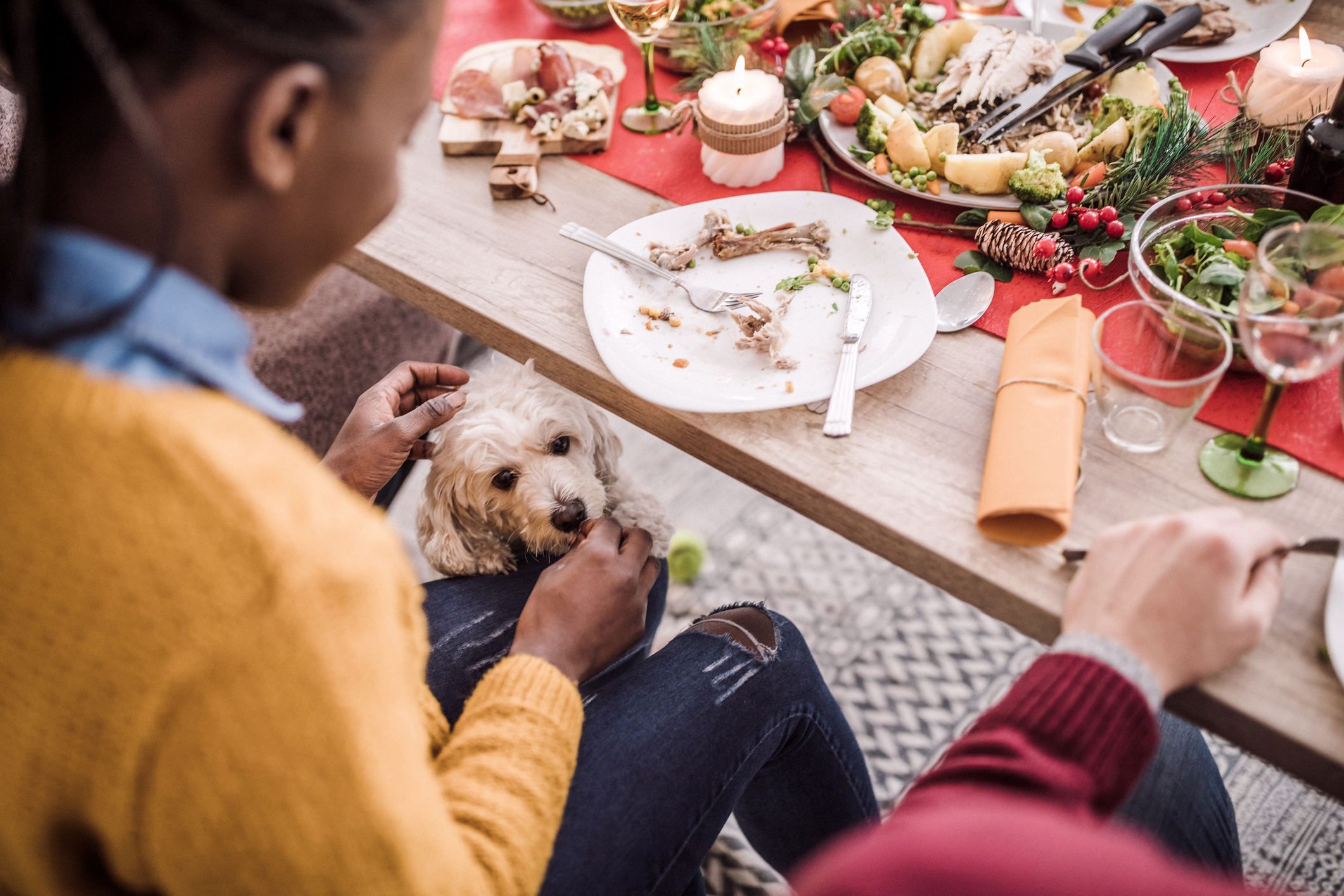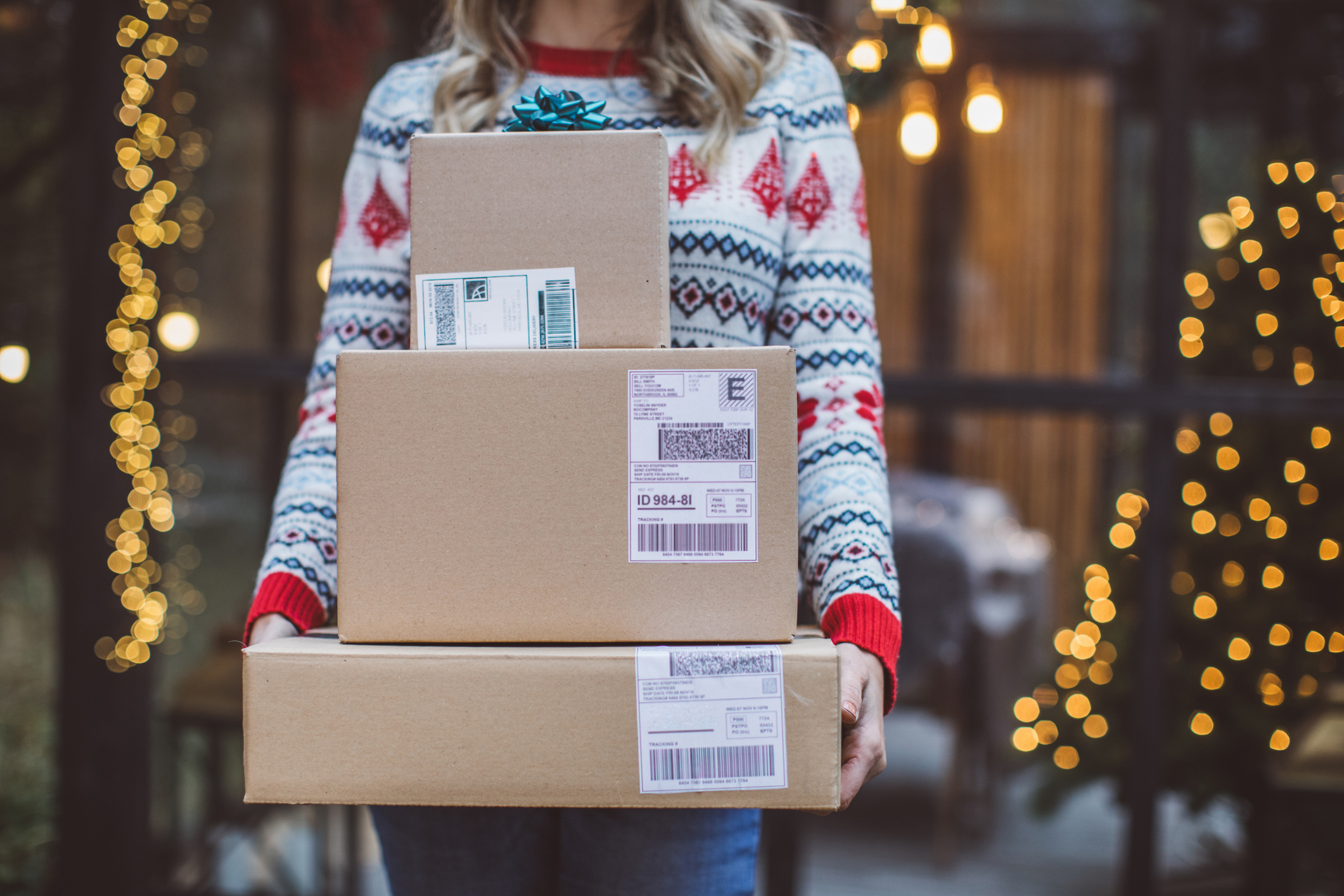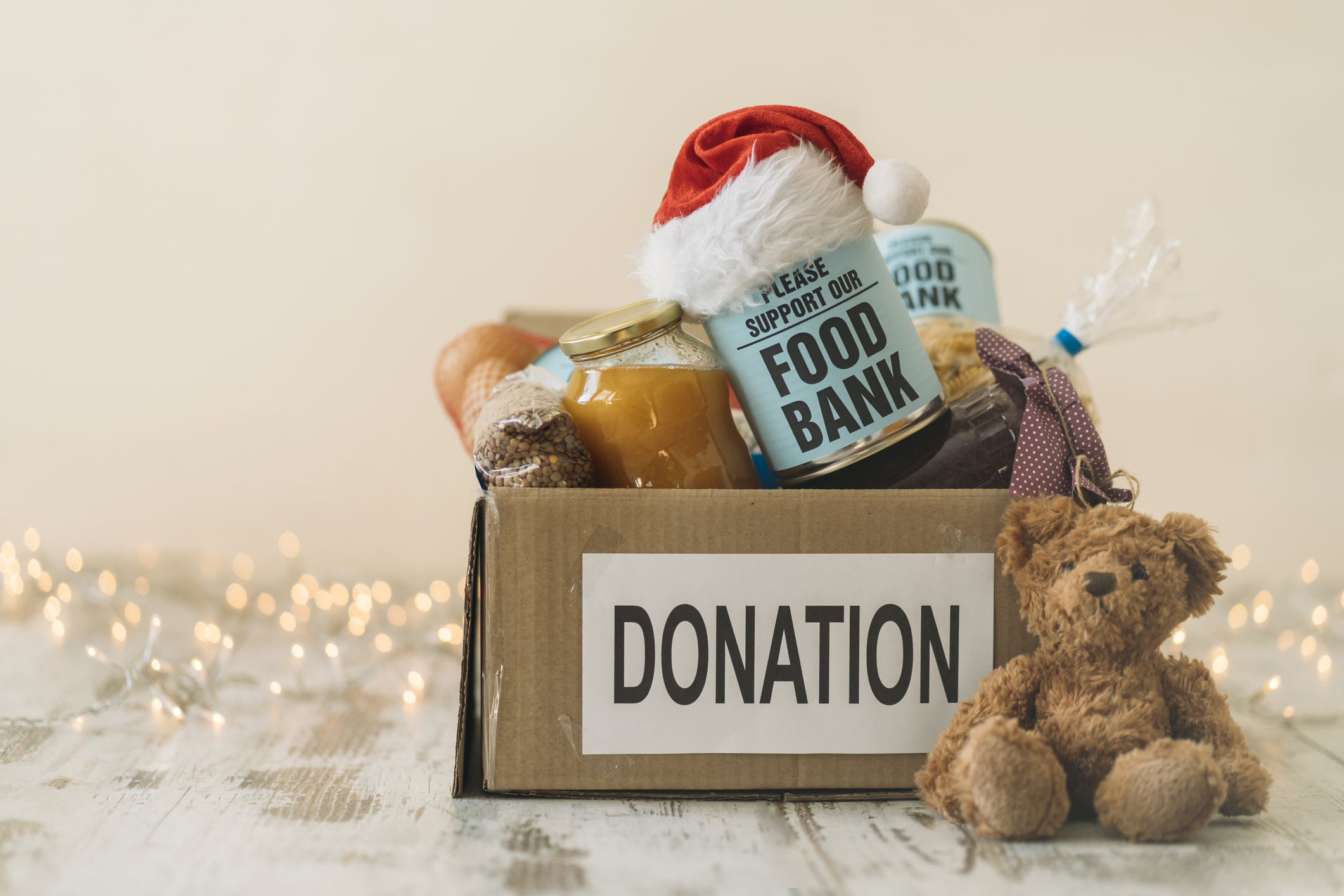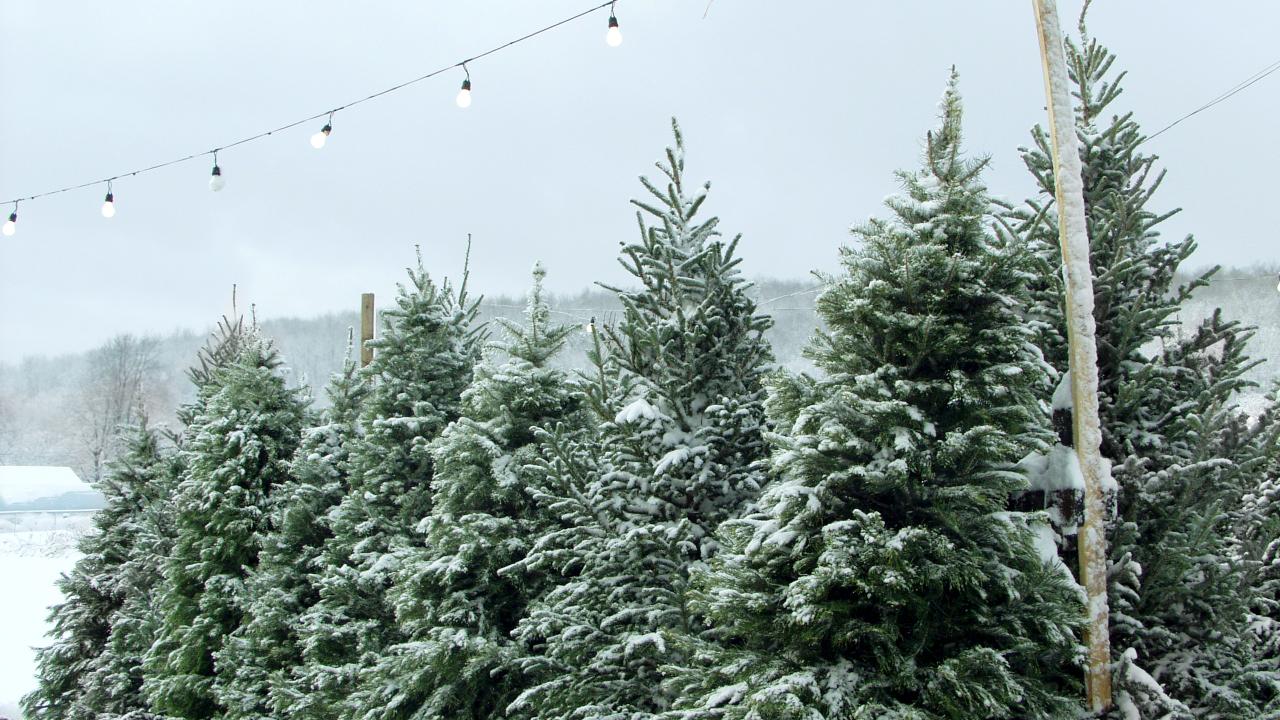From lights and trees to pets, food, shopping, stress and the pandemic, UC Davis experts are available to address journalists’ winter holiday questions.
Home for the holidays
Lighting
Michael Siminovitch, professor of design, is an expert in lighting technology and energy efficiency for residential, commercial and institutional building types. He is highly involved with state policy related to building standards that support sustainability and carbon neutrality. His recent efforts have been focused on developing quality-based residential lighting standards that support vision and color perception. He is also developing educational and training programs for building specifiers, architects and engineers related to energy efficiency and lighting controls. Contact: mjsiminovitch@ucdavis.edu
The future of Christmas trees
Joseph Stewart, a postdoctoral researcher, can discuss the future of Christmas trees and other conifers in the Sierra Nevada in the face of drought, wildfires and climate change. He led a study highlighting a tool that helps forest managers learn where conifer replanting efforts are most beneficial. Contact: joaaelst@gmail.com
Pets
Robert Poppenga is a veterinary clinical toxicologist with the California Animal Health and Food Safety Lab in the School of Veterinary Medicine. He can discuss what ingredients in common holiday foods or decorations may cause harm to pets if accidentally ingested. Contact: 530-752-8125, rhpoppenga@ucdavis.edu
Jamie Burkitt is an assistant professor with the Emergency and Critical Care Service at the UC Davis veterinary hospital. She can speak about what signs to look for or immediate actions that should be taken if your dog or cat accidentally ingests common holiday foods that might be dangerous. Contact: jmburkitt@ucdavis.edu

Elizabeth Stelow is the chief of behavior service at the UC Davis Veterinary Medical Teaching Hospital. She can discuss the human-animal bond and why pets make bad gifts. She can also discuss anxiety and behavioral changes that occur in dogs and cats around the holidays. She is able to respond to questions about traveling with pets or how to handle the interaction between pets and houseguests at holiday time. Contact: eastelow@ucdavis.edu
Melissa Bain is a professor of clinical animal behavior at UC Davis School of Veterinary Medicine. She can discuss anxiety and behavioral changes that occur in dogs and cats around the holidays as well as how to appropriately travel with your pet. She can also speak about animal aggression and introducing new pets to a household. Contact: 530-752-6226, mjbain@ucdavis.edu.
Food safety
Erin DiCaprio is an assistant professor of cooperative extension for community food safety. She can speak about microbial food safety and how to prevent food poisoning during the holidays. She can discuss proper sanitation and preparation of food. She can also speak about the best ways to properly ferment foods or how to prepare and can fruits and vegetables for the holidays. Contact: 530-752-6594, eldicaprio@ucdavis.edu
Linda Harris is a professor of cooperative extension specializing in microbial food safety in the Department of Food Science and Technology. She can talk about foodborne hazards and ways to prepare and store foods and handle leftovers from your holiday feast. Her laboratory conducts research on foodborne pathogens such as Salmonella and Listeria and their control in fresh fruits, vegetables and tree nuts. Contact: ljharris@ucdavis.edu
For more information on food safety visit ucfoodsafety.ucdavis.edu/consumers/food-safety-home/holiday-food-safety.
Shopping, shipping and economics
Commodities and supply chain
Katheryn Russ, professor of economics, can discuss how post-pandemic supply chain issues may affect holiday purchasing, car purchases and other consumer economic realities. She is a faculty research associate in the National Bureau of Economic Research International Trade and Investment Group and a nonresident senior fellow of the Peterson Institute. She served as senior economist for international trade and finance at the White House Council of Economic Advisers in 2015-2016. Contact: knruss@ucdavis.edu
Rachel Chen, professor in the Graduate School of Management, conducts research on operations and supply chain management and dynamic pricing. She grew up in central China and moved to Shanghai to attend Tongji University. She has published research on how airlines should provide better consumer service by compensating passengers when flights are delayed. Contact: rachen@ucdavis.edu

Wing Thye Woo, professor of economics, can discuss East Asian economies, particularly those of China, Indonesia and Malaysia. He is also president of the Jeffrey Cheah Institute on Southeast Asia in Kuala Lumpur; Chang Jiang professor at the Central University of Finance and Economics in Beijing; Distinguished Professor at Fudan University in Shanghai; director of the East Asia Program within the Earth Institute at Columbia University; and a nonresident senior fellow at the Brookings Institution in Washington, D.C. Contact: wtwoo@ucdavis.edu
Shipping and shopping
Miguel Jaller co-directs the Sustainable Freight Research Program at UC Davis’ Institute of Transportation Studies. He can discuss the environmental costs of fast shipping and e-commerce. He researches the movement of goods and its environmental impact. Contact: mjaller@ucdavis.edu
Holiday travel
COVID-19 and the pandemic
Dean Blumberg is chief of Pediatric Infectious Diseases at UC Davis Children’s Hospital. He is available to discuss various aspects of the pandemic, the omicron variant, COVID-19’s effects on children, the importance of vaccination and more. He has appeared in regional and national press reports as an expert on COVID-19, the flu and other winter illnesses. Blumberg is also a professor in the Department of Pediatrics and co-host of the Kids Considered podcast. Contact: hs-publicaffairs@ucdavis.edu
Natascha Tuznik is an infectious disease specialist in the Department of Internal Medicine. She is part of the UC Davis Health Travelers Clinic, which provides medical consultation for people planning international travel. Tuznik has been interviewed and quoted widely on how COVID-19 affects travel, recreation and eating at restaurants. She can discuss travel restrictions, the importance of being vaccinated, and do’s and don’ts to stay healthy while taking trips during the COVID-19 pandemic. Contact: hs-publicaffairs@ucdavis.edu
Oil and gas
Mark Agerton, assistant professor in the Department of Agricultural and Resource Economics, is available to discuss his research on U.S. oil and gas supply issues. Contact: mjagerton@ucdavis.edu
Dave Rapson, a professor of economics, can discuss what affects gasoline and vehicle supplies. He conducts research in energy and environmental economics, industrial organization, and applied econometrics. He evaluates dynamic electricity pricing regimes and carbon-offset programs. He’s also designed and analyzed large-scale randomized field experiments to test the role of information and prices on consumer electricity demand. Contact: dsrapson@ucdavis.edu
Erich Muehlegger, a professor of economics, is an expert in energy and environmental economics, public finance and tax policy, and industrial organization. He can discuss the markets for transportation fuels and how tax policy and energy prices affect consumer vehicle purchases. His recent research studies the effect of gasoline taxes, vehicle subsidies and energy prices on electric vehicle adoption, and the effect of oil price shocks on gasoline and diesel prices. Contact: (Available through Jan. 3) emuehlegger@ucdavis.edu
Poverty, stress and the holidays
While higher prices are hitting consumers’ wallets, families need to make sure they are aware of programs that can help them keep their families fed. Psychologists can discuss the effect of poverty on stress levels.

Child tax credit, safety net programs
Marianne Page is a professor of economics, director of the Center for Poverty and Inequality Research, and a research associate at the National Bureau of Economic Research. She specializes in inter-generational mobility and the impact social programs have on children. Her recent research includes investigations of the short- and long-term effects of U.S. public health investments in children (such as the WIC and Medicaid programs). She has also published papers on the impacts of educational investments. She was appointed in 2020 to California Gov. Newsom’s Council on Economic Advisors. Contact: mepage@ucdavis.edu
Marianne Bitler is a professor of economics with the Center for Poverty and Inequality Research. Her research measures the impact of various government safety net programs, including TANF, SNAP, WIC and the ACA. She is chair of the Panel on Improving Consumer Data for Food and Nutrition Policy Research Service for the National Academies of Sciences, Engineering and Medicine. She is a research associate with the National Bureau of Economic Research, and she is currently serving on the Institute of Medicine’s Panel to Review the WIC Package. She co-authored a major study for the Brookings Institution’s Hamilton Project about how well TANF responded for families in poverty during the Great Recession. Contact: bitler@ucdavis.edu
Holiday stress
Angela I. Drake is a fellowship-trained clinical neuropsychologist in the Department of Psychiatry and Behavioral Sciences. She has been interviewed and quoted broadly on mental health topics including holiday stress, pandemic-related anxiety and the importance of the mind-body connection. She aims to help her patients develop new behaviors, thinking patterns and strategies to better manage stress and improve their quality of life and their relationships with others. Contact: hs-publicaffairs@ucdavis.edu
Paul Hastings is a professor of psychology. He studies child and adolescent development, parenting and family relationships, and biological processes. He can speak about the ways in which biological and environmental factors shape how children develop emotionally and socially, both in terms of normal and maladaptive development. He co-authored a policy brief for the Center for Poverty and Inequality Research and published a paper that described how poverty during childhood and adolescence can predict long-term health. Contact: pdhastings@ucdavis.edu
Rural poverty
Lisa Pruitt is a professor of law. Her research focuses on the legal and policy implications of rural poverty, poverty and race, and poverty and place. She can also speak about income inequality along the rural-urban continuum and declining mobility with an emphasis on diminishing access to higher education. Pruitt blogs about rural legal issues at Legal Ruralism Blogspot, and writes regularly for The Conversation. Contact: lrpruitt@ucdavis.edu
Media Resources
Media Contacts:
- Amy Quinton, UC Davis News and Media Relations (pets, food safety, agriculture), 530-601-8077, amquinton@ucdavis.edu
- Karen Nikos Rose, UC Davis News and Media Relations (economics, poverty, psychology, supply chain), 530-219-5472, kmnikos@ucdavis.edu
- Kat Kerlin, UC Davis News and Media Relations (environment), 530-750-9195, kekerlin@ucdavis.edu
- UC Davis Health, Public Affairs, hs-publicaffairs@ucdavis.edu
